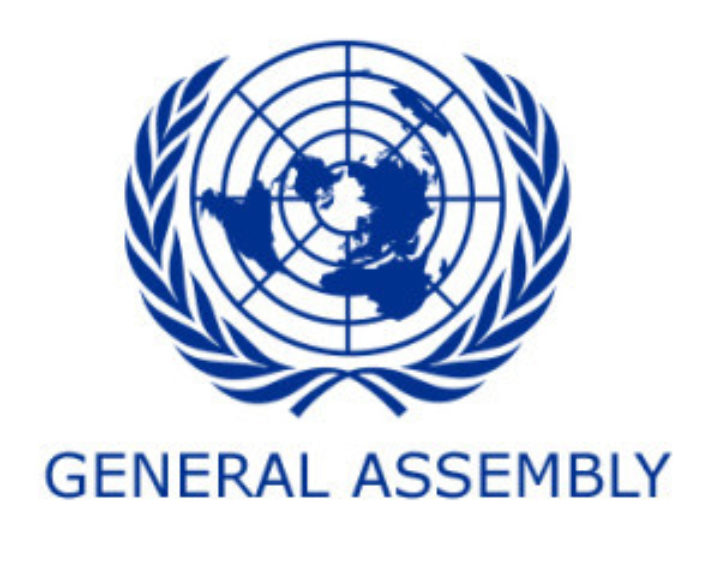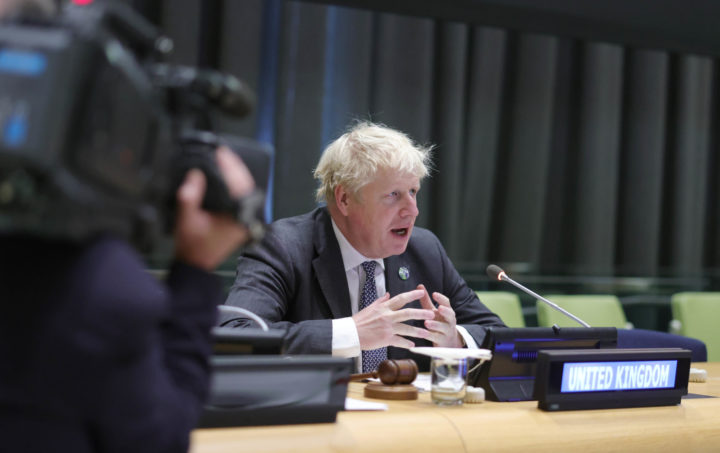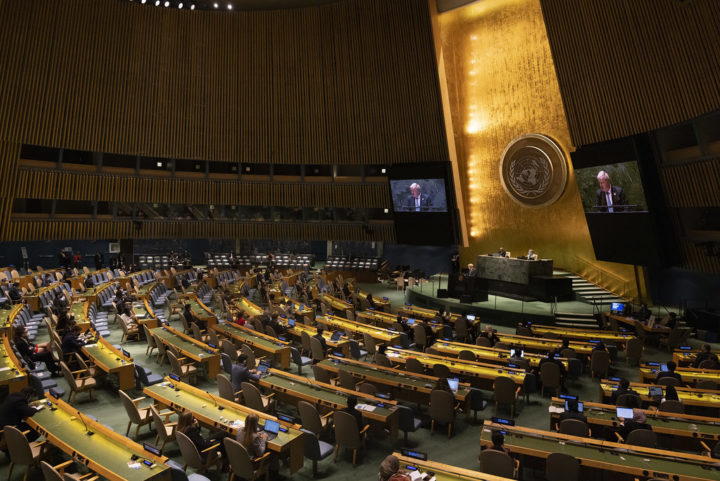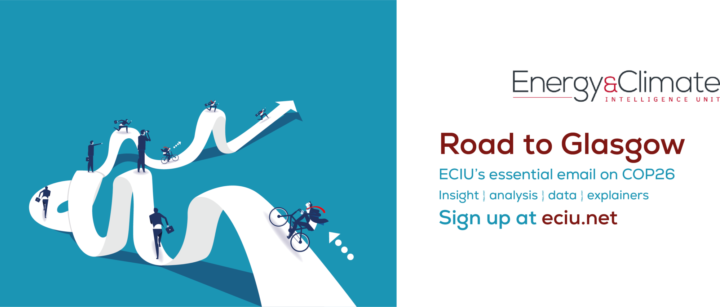What does progress in New York mean for Glasgow?
Commitments from two of the biggest global emitters at the UN General Assembly send UK COP26 hosts home with hope for further momentum before the UN climate summit in Glasgow this November

By Gareth Redmond-King
@gredmond76Share
Last updated:
The United Nations held its AGM this month – rather more grandly known as its General Assembly (UNGA). Boris Johnson flew out with a long to-do list and a busy schedule. Climate action was top of his list; as hosts of the next UN climate summit – COP26 in Glasgow – he had a lot to do whilst he had his fellow world leaders together in New York.

Real money for climate action
His first priority was climate finance. A decade ago, the world’s wealthy nations promised developing countries that they would provide $100bn a year in financial support by 2020. Nine months into 2021, and just weeks away from COP26, the OECD recently reported that the tally for the $100bn was around £20bn short.
As the PM set off for New York, UN Secretary General, Antonio Guterres warned that COP would fail unless rich countries lived up to their promise. On the plane, Johnson commented to journalists that the chances of success were 60/40.
But the week saw significant progress. In his speech to the UN General Assembly, US President Joe Biden pledged to double US climate finance contributions. He had already doubled US cash back in April, when he hosted his climate leaders summit. However, after four years of absence from the UN climate process, America had fallen way behind. So, even now at $11.4bn, calculations by the ODI suggest that this is some way off the US’ ‘fair share’. However, for the purposes of these weeks before COP, the important thing is that the US stepped up and coughed up. Not only does that help close the gap, but it may well prompt others who have not yet enhanced their contributions. That includes wealthy G20 laggards Australia, but also EU members – Spain, and COP co-hosts, Italy.
Real plans for climate action
Also high on the to-do list was pressure for further climate ambition, particularly from big emitters which have either not yet submitted new climate pledges (NDCs), or whose targets are too weak – which includes G20 nations, not least China, India, Russia and, again, Australia. This is in the context of the UN report earlier in September that calculated that existing NDCs, far from halving emissions this decade, cause them to rise 16%, putting us on track for catastrophic warming of 2.7°C by the end of the century.
Here there was less actual progress. Johnson joined Guterres to host a round-table of climate vulnerable nations and big emitters. He made a powerful plea for further action, saying:

Leaders in the room from small island states – those most threatened by climate impacts –expressed their anger to large emitters. Mia Mottley, Prime Minister of Barbados, was reported to say that it was : “inexplicable the world isn’t taking action and it suggests we in small islands are to remain dispensable and remain invisible." Whilst Costa Rican President, Carlos Alvarado Quesada, criticised increases in spending on defence, suggesting “perhaps it is my mistake, I am not getting the point. We are fighting for what? A planet that is not viable? That's the question: compete to control what?”
That this demand for greater ambition is now coming so directly from the Prime Minister of the host country, not only from his Ministers and COP President-designate Alok Sharma, is an important step. As is the fact that it is done face to face with world leaders, in the full glare of the diplomatic spotlight, and side-by-side with leaders of climate vulnerable nations.
Johnson repeated his urging later in the week, in his speech on the floor of the UN, telling the assembled world leaders that we are approaching a ‘critical turning point’ and that “it is time for humanity to grow up …[and] listen to the warnings of the scientists”, going on to warn that:
Real climate action
Before Johnson’s speech, there was an important announcement from another world leader. Whilst we still await China’s emissions pledge – their NDC – Xi Jinping, at the end of his address to UNGA, said that his country would "step up support for other developing countries in developing green and low carbon energy, and will not build new coal-fired power projects abroad".

As the world’s largest financer of coal, it is reported this commitment will cull some 50GW of new coal. This not only means major cuts to the most carbon-intensive fossil fuel, but also sends powerful market signals to private investors that will help shift finance from coal to clean. This commitment comes just a couple of weeks after visits to Beijing by both Alok Sharma, and US climate envoy John Kerry, and follows similar commitments made by the G7 in the UK in July. This, in turn, did not go as far as a world-leading promise made by the UK last year when they announced that they would no longer fund fossil fuel projects overseas by any route, including trade, aid and export finance.
So: leadership from the US on climate finance, from China on climate action, and from the UK Prime Minister on urging stronger climate ambition in the coming weeks. Johnson and Sharma return to the UK, less than 40 days before COP26, with a fair wind behind them. UNGA and the work which led up to it, has been diplomatic and political capital well-spent, it seems. By no stretch of the imagination is the job done, and in no way is success in Glasgow guaranteed. But there’s just a little bit more optimism about the chances of success after the last week in New York.

- with all the insight, analysis, and data on the road to the COP26 climate summit in Glasgow in November 2021.
Share